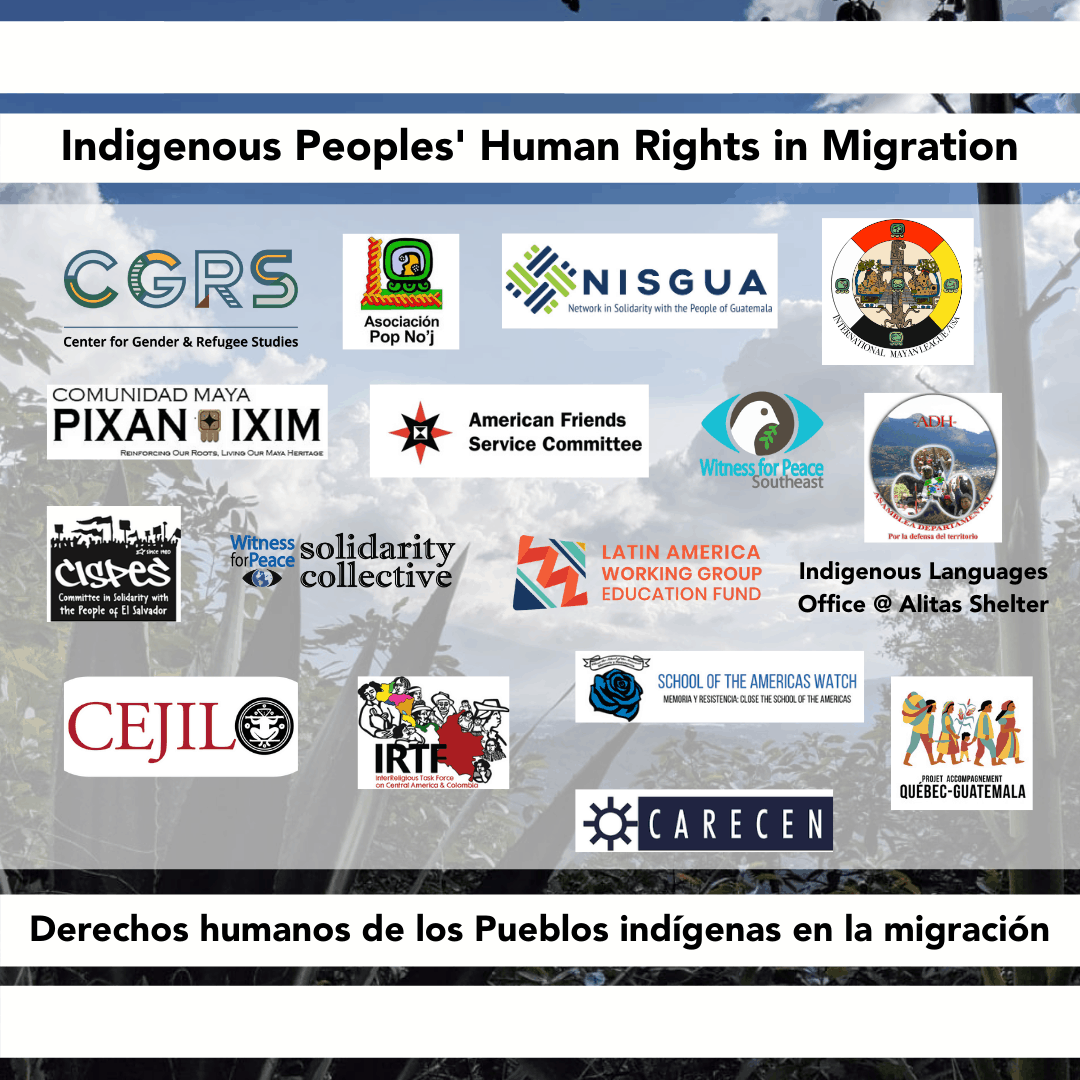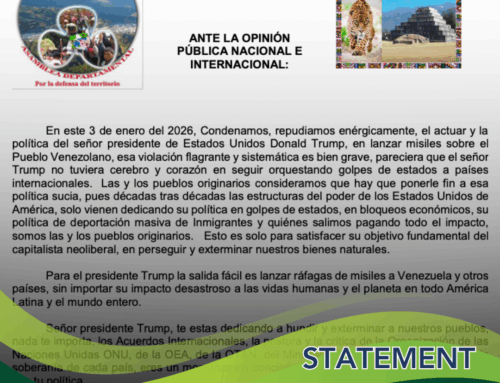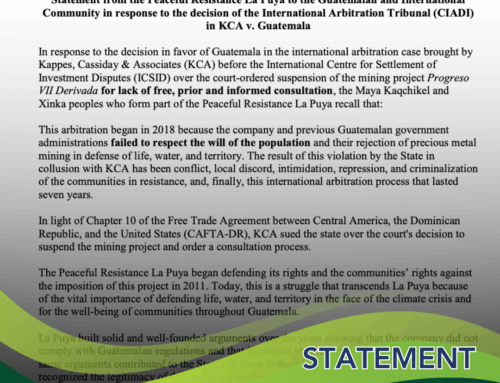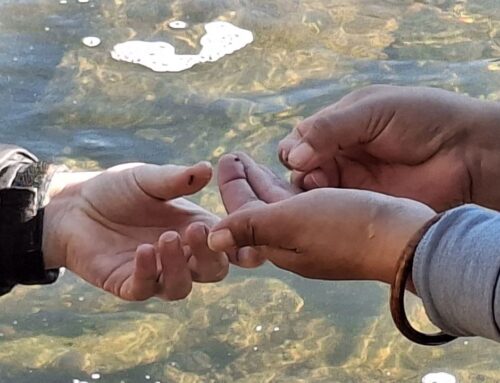
Indigenous peoples of Abiayala (the Americas, in colonial terms) continue to face the destructive results of ongoing Doctrine of Discovery-based colonialism: imposed resource extraction, impunity for crimes against humanity, systemic poverty, robbing of ancestral lands, and more. Because national governments fail to uphold their human rights obligations, Indigenous peoples are forced to migrate in disproportionate numbers to seek those protections.
U.S. immigration agencies are violating international human rights standards for Indigenous peoples, including the right to exist as distinct peoples, the right to speak their primary language, and the right to due process (UNDRIP, ILO Con. 169, ADRIP, UN ICCPR). The U.S. government is engaging in a form of statistical genocide by omitting identity and language data of Indigenous migrants and misclassifying them as “Hispanic”. The Department of Homeland Security (DHS) and its immigration enforcement agencies (CBP, BP, and ICE) are attempting to erase Indigenous migrants even when Indigenous migrants represent peoples and cultures that predate the nation states they migrate from. This discrimination against Indigenous peoples and their rights to language access violates their legal right to due process through every stage of the U.S. immigration system.
President Biden has taken steps to address some urgent needs in the immigration system, but deportations and expulsions continue. Previous and current administrations have failed in their legal duty to protect the human rights of all migrants, particularly Indigenous peoples. The Biden administration needs to recognize, consult, and directly engage with the leadership of Indigenous and Black migrants. To fulfill their duty, we call on the Biden administration to:
- Immediately cease all deportations during the pandemic, which have contributed to spreading COVID-19 to otherwise relatively safe Indigenous communities,
- Immediately cease all expulsions of asylum-seekers under Title 42, which disproportionately impact Indigenous children and Black refugees,
- Require that CBP, BP, and ICE document Indigenous identity and language at first contact with migrants at the border, and ensure rigorous interpretation and translation to Indigenous languages at every stage in the immigration processes,
- Rigorously include established Indigenous leaders and groups in all consultation and decision-making spaces related to migration,
- Create an Indigenous human rights legal framework and agency-level protocols to enforce it,
- Recognize Indigenous peoples rights and governance structures as legitimate and sovereign,
- Rollback Trump-era policies that limit the refugee definition and restrict asylum eligibility, which impact Indigenous women and families,
- Investigate the involuntary and uninformed sterilization of women in detention and identify Indigenous survivors among them.
For more information, please see:
- Council of the Cherokee Nation: A Resolution in Support of Indigenous Language Rights Specified in National Congress of American Indians
- CRCL Complaint on Challenges Faced by Indigenous Language Speakers in Family Detention
- Demonstration of Border Patrol Encountering Indigenous Language Speaking Immigrants
- Exclusion of Indigenous Language Speaking Immigrants in the US Immigration System
- Indigenous Peoples’ Right to Exist, Self Determination, Language and Due Process in Migration
- Indigenous Peoples’ rights in the context of borders, migration and displacement
- Law School Case Brief: Johnson v. M’Intosh
- O’odham Niok? In Indigenous Languages, U.S. “Jurisprudence” Means Nothing
- Preliminary study of the impact on indigenous peoples of the international legal construct known as the Doctrine of Discovery
- The National Congress of American Indians: Resolution #ABQ-19-012: Calling to Protect and Advance the Human Rights of Indigenous Peoples Migrating to the U.S.
NISGUA thanks the following groups and people for their support in writing this petition and gathering these resources: International Mayan League, Indigenous Languages Office @ Alitas Shelter, Giovanni Batz, Comunidad Maya Pixan Ixim, Center for Gender and Refugee Studies, Latin America Working Group, Asociación Pop No’j.






Leave A Comment